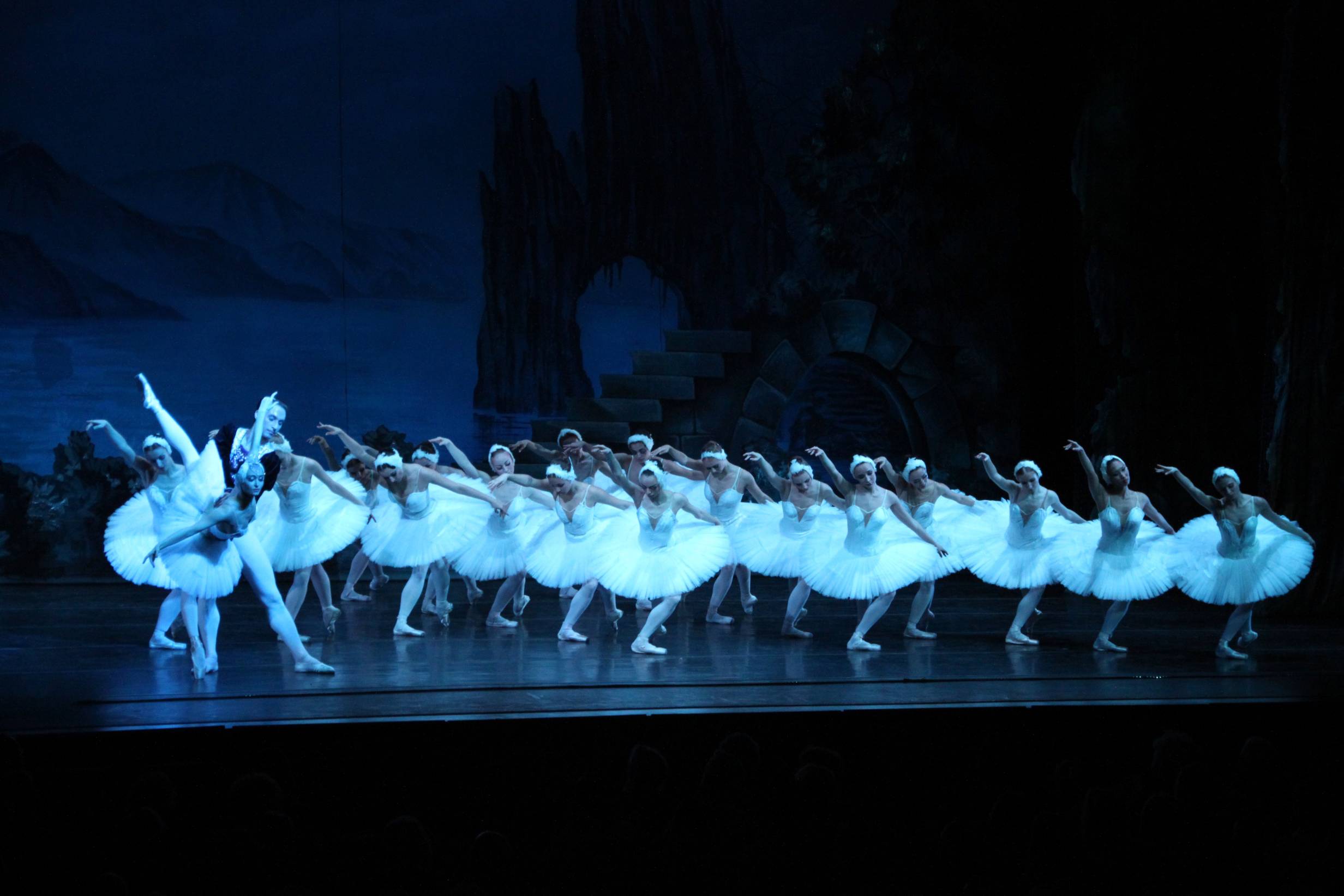Russian ballet represents some of the most highly-regarded and technically impressive ballet in the world. Though ballet started in France, many consider Russian ballet to be the purest and most beautiful expression of the art. Recent events in the country’s ballet programs have been somewhat fraught, but performances by premier dance companies are still highly regarded. The Moscow Festival Ballet was established in 1989 by Bolshoi Ballet principal dancer Sergei Radchenko. It was intended to continue this tradition of classical Russian ballet as part of a touring company, and has been well-received by cities around the world.
The Moscow Festival Ballet returns to the Krannert Center this week with three ballets on successive nights. Russian ballet has become a staple of the Krannert spring season, and this year includes some particularly exciting performances. To learn more about what’s on offer, we interviewed Alexander Daev, Ballet Master and Assistant Artistic Director for the troupe.
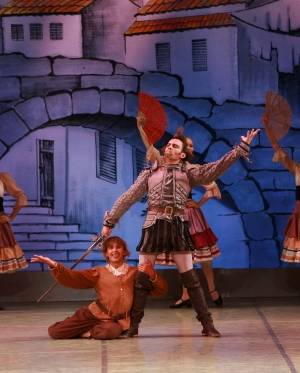 Smile Politely: I’m particularly interested in the production of Don Quixote (January 20th), which is not in itself a traditional ballet story. On the other hand, the themes of hopeless love and reckless bravado will be familiar to many fans of ballet. Can you talk a little about this production?
Smile Politely: I’m particularly interested in the production of Don Quixote (January 20th), which is not in itself a traditional ballet story. On the other hand, the themes of hopeless love and reckless bravado will be familiar to many fans of ballet. Can you talk a little about this production?
Daev: Don Quixote is part of the classical ballet heritage, but is not as well known to the general public as are other classical ballets, which makes it special. When large theaters perform Don Quixote it is a big, sold-out celebration. Our version is a small part of Cerventes’ story. Besides Leon Minkus’ music, there are also some parts in it composed by Ceasar Pugni. Also, Yuri Vetrov, a former Bolshoi dancer who danced with our founder Sergey Radchenko did some of the staging for this performance. Dancers are always happy to perform this ballet. It is a pleasant change for us from other more regularly presented ballets. The story of Don Quixote is timeless. Its universal themes of love, money, happiness, strife and madness, are as relevant to the human spirit today as they were when the ballet was created. The young lovers: Basilio has no money, Kitri’s poor father wants her to marry a man with money, all are full of fire and love, just like the story of young people today.
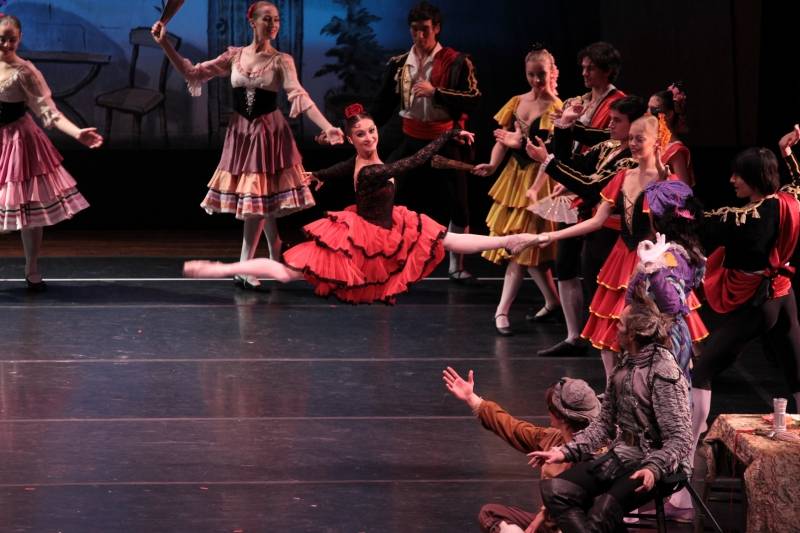
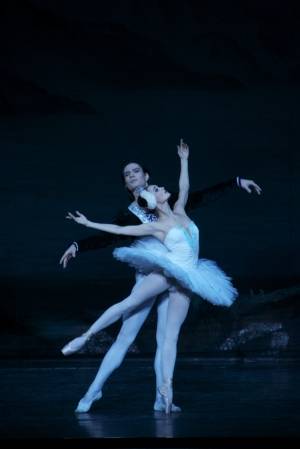 SP: Swan Lake (January 19th), of course, is famous for being Russian ballet’s centerpiece performance. The Bolshoi Ballet in particular, where Moscow Festival Ballet director Sergei Radchenko got his start, is famous for their definitive productions of this ballet. What should audience members be looking for in the MFB’s production?
SP: Swan Lake (January 19th), of course, is famous for being Russian ballet’s centerpiece performance. The Bolshoi Ballet in particular, where Moscow Festival Ballet director Sergei Radchenko got his start, is famous for their definitive productions of this ballet. What should audience members be looking for in the MFB’s production?
Daev: We are a purely classical ballet company. Our mission is to uphold the Russian classical ballet tradition. We’ve tried to keep our performance as true to the original version as possible. Of course, technique has improved over the years, but the original choreography of Petipas and Lev Ivanov is what we perform. Our Artistic Director, Elena Radchenko, staged our production, always keeping true to the original version.
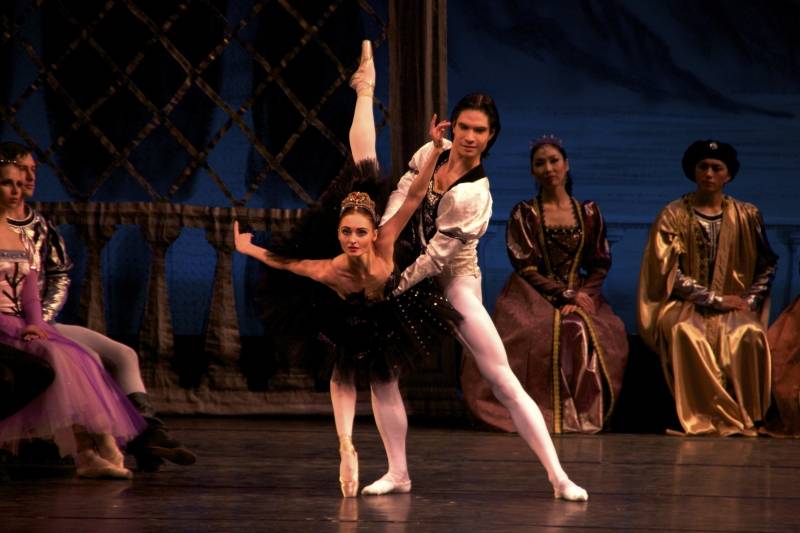
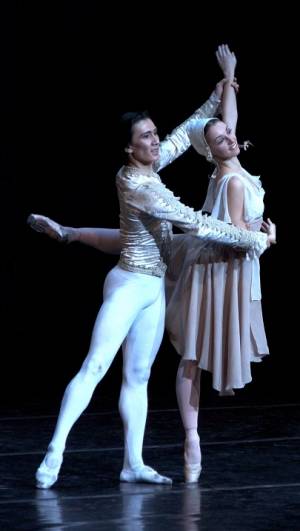 SP: Cinderella (Jan 21), with its fairy tale inspiration and happy ending, can seem like the kiddie production of this trio. But I know in high school I saw some extremely blasé peers converted by the quality and power of Prince Charming’s dancing during a production in Cincinnati. What are your favorite features of this production?
SP: Cinderella (Jan 21), with its fairy tale inspiration and happy ending, can seem like the kiddie production of this trio. But I know in high school I saw some extremely blasé peers converted by the quality and power of Prince Charming’s dancing during a production in Cincinnati. What are your favorite features of this production?
Daev: That is a difficult question to answer because I love it all! Ballet is a perfect medium through which to tell a fairy tale, as shown through the many ballets based on fairy tales created through the centuries. They both tell stories with universal themes and emotions that all of humanity shares, but at the same time they both take the audience into another world where everything is possible and anything can happen. The music gives the emotions life and rhythm while the dancers tell the story through their movements and pantomime.
SP: Why would you argue people should go out of their way to see a Russian ballet performance? What makes Russian ballet a special experience over, say, going to one of our touring American companies?
Daev: We are a purely Russian classical ballet company. Our performances are as close to the original masterpieces created by our predecessors as possible. Only modern technology for the stage and ever-evolving dancers’ technique bring us into this present time. Our dancers are very experienced but at the same time young and vital. We are a small company of 50 members so we can tour and take our ballets to many corners of the world where people do not usually have the opportunity to see purely Russian classical ballet.
SP: Would you recommend any of these performances in particular to someone who’s new to ballet?
Daev: Any one of the Ballets would be a good choice. Cinderella is a very popular story that everyone knows and might be easier for someone who is not familiar with ballet to follow.
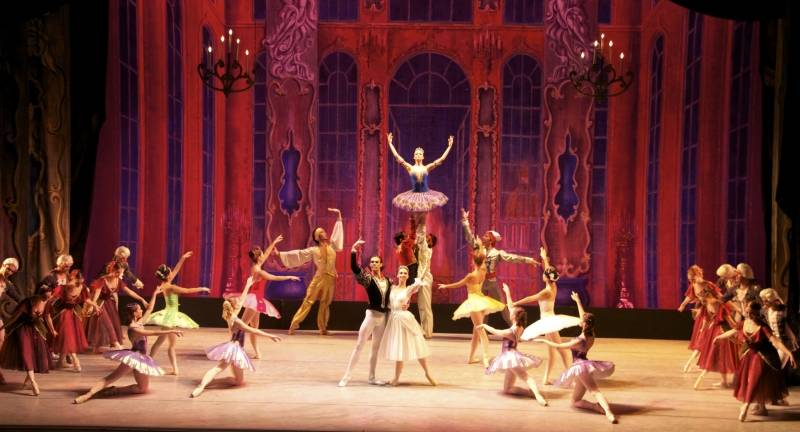
———
Peformances are Tuesday/Wednesday/Thursday this week, with each ballet only offered on the date listed. The ballets begin at 7 p.m. Tickets for each performance are $45 general admission, $40 for senior citizens, $15 for non-U-of-I students, and $10 for U of I students and youth (high school and younger). Flex pricing is also available. Tickets are available online or by calling the ticket office at 217-333-6280.








